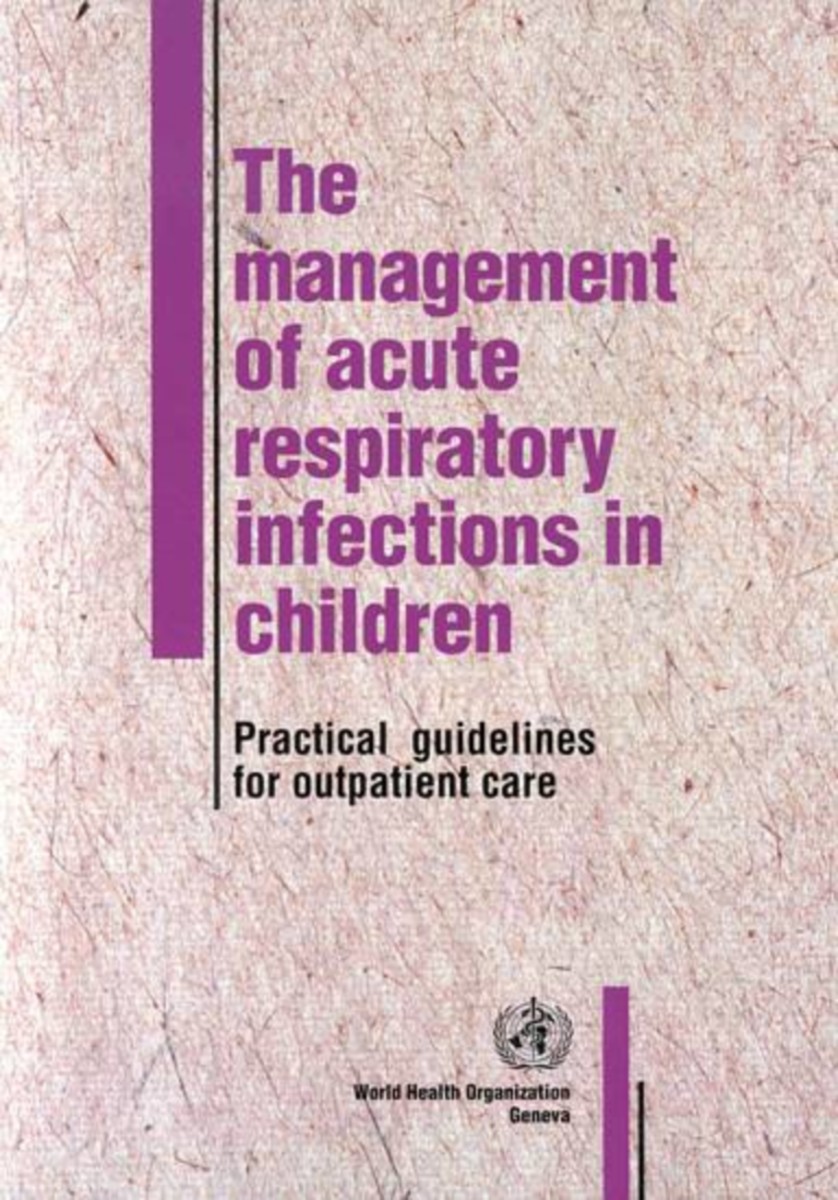Management of Acute Respiratory Infections in Children
Practical Guidelines for Outpatient Care
- Publisher
World Health Organization - Published
1st November 1995 - ISBN 9789241544771
- Language English
- Pages 82 pp.
- Size 8.25" x 11.5"
A step-by-step guide to the correct management of respiratory infections in infants and young children. Addressed to staff in first-level health facilities, the book explains how to assess a child, recognize symptoms, classify the illness, and provide appropriate treatment, whether involving immediate referral to hospital, treatment with antibiotics at home, or simple home care. Throughout, a special effort is made to help staff distinguish the few, very sick children from the many others whose infections can be safely treated at home. The manual also aims to help prevent deaths from pneumonia and other severe illnesses by offering abundant advice on the recognition and urgent management of danger signs.
The manual has two parts, each based on the use of a quick-reference case management chart, reproduced in a foldout version. Part one covers the management of pneumonia, wheezing, coughs and colds. Advice on how to collect essential information about the signs of respiratory problems is followed by a description of the steps involved in classifying the illness, determining the degree of severity, and identifying the appropriate treatment. Part one concludes with detailed treatment instructions, including how to give an antibiotic and treat fever and wheezing.
Part two explains how to assess, classify, and treat the child with an ear problem or sore throat. Treatment instructions include advice on how to dry the ear by wicking, give an antibiotic, and manage streptococcal sore throat. Further practical information is provided in a series of annexes, which explain how to refer a child to hospital, what to do when referral is not feasible, how to use a rapid-acting bronchodilator, and how to determine whether complaints and symptoms are due to measles, pertussis, or diphtheria.
World Health Organization
World Health Organization is a Specialized Agency of the United Nations, charged to act as the world's directing and coordinating authority on questions of human health. It is responsible for providing leadership on global health matters, shaping the health research agenda, setting norms and standards, articulating evidence-based policy options, providing technical support to countries, and monitoring and assessing health trends.


